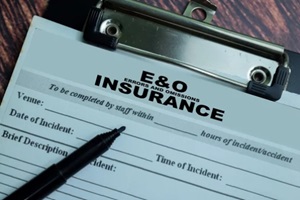![]() As a business owner it is important to know which insurance policies your business needs; and, in Hawaiʻi, there are very specific requirements for businesses.
As a business owner it is important to know which insurance policies your business needs; and, in Hawaiʻi, there are very specific requirements for businesses.
Carrying the right policies can help businesses prepare for risks, take worry out of their finances, and stay compliant with local regulations.
Take the time to review the following Hawaiʻi-specific business insurance areas before purchasing or updating your policy.
1. Workers’ Compensation Is Mandatory for All Businesses
Although there are some exceptions, most businesses in Hawaiʻi are required to carry workers’ compensation insurance. This includes any business that has one or more part-time or full-time employees.
Workers’ compensation, more commonly known as “workers’ comp,” is a federally-required coverage that provides benefits to employees who become ill or injured as a result of their job.
A workers’ comp policy covers the cost of medical treatment, as well as salary replacement. It also provides employees with disability benefits while they are recovering and unable to return to work.
2. Business-Owned Vehicles Must Be Covered by Insurance
If you have a business-owned vehicle, you will need to carry commercial auto insurance. This covers vehicles such as vans, trucks, and cars used to conduct business.
A commercial auto policy will generally include bodily injury liability, property damage liability, and combined single limit (CSL). It may cover medical payments, uninsured motorist coverage, comprehensive physical damage coverage, and collision coverage.
When buying commercial auto insurance, be sure to include on the policy anyone who may be driving a business-owned vehicle. This should be employees and other individuals who may be behind the wheel at any time.
3. Cyber Liability Insurance Can Minimize Financial Losses
In Hawaiʻi, data breach laws require businesses to report any security breaches to their potential victims. The costs associated with notifying victims, covering legal fees, and paying fines after a breach can add up quickly.
 Although notifying victims is mandatory, carrying cyber liability insurance is not; however, this insurance policy helps minimize the financial impact of a cybersecurity incident, the mandatory notifications, and the post clean up.
Although notifying victims is mandatory, carrying cyber liability insurance is not; however, this insurance policy helps minimize the financial impact of a cybersecurity incident, the mandatory notifications, and the post clean up.
Custom insurance solutions are available to businesses based on their level of risk. For those businesses with heavy data risk, some coverage options to consider include litigation costs, forensic investigations, cyber extortion, crisis management expenses, and regulatory defense costs.
4. Qualifying Businesses Must Offer Employees Health Coverage
Today, qualifying employers across the country are required to provide employees with health insurance coverage. The Affordable Care Act (ACA) applies to employers who have 50 or more full-time equivalent employees.
Hawaiʻi also has its own laws in place that require businesses to provide medical coverage to employees. Passed in 1974, the Hawaiʻi Prepaid Health Care Act requires private employers to provide health insurance to employees who work at least 20 hours per week for a minimum of four weeks in a row.
Exceptions to this rule include insurance or real estate agents who work on commission, seasonal farm workers, and certain family businesses. Offering group health insurance can help businesses meet these state-wide requirements.
5. Employers are Required to Carry Temporary Disability Insurance
Just five states in the U.S. require businesses to carry Temporary Disability Insurance (TDI) and Hawaiʻi is one of these states. TDI provides benefit payments to insured employees for weeks of unemployment due to a temporary injury or disability.
TDI protects workers against wage loss that occurs due to a non-work-related injury or illness. This means that an employee could receive TDI benefits if they are recovering from an illness, being treated for a chronic illness, or dealing with pregnancy complications.
Hawaiʻi’s TDI laws cover employees who work at least 20 hours per week. The law sets a minimum benefit of 58% of the worker’s average weekly wages. Benefits begin on the eighth day of the eligible disability and may last up to 26 weeks.
6. Insurance May Be Required to Comply with Licensing Regulations
Your industry may affect your business insurance requirements in Hawaiʻi. This is especially true for businesses that require a license to legally work in the state. For example, contractors are generally required to carry surety bonds or general liability insurance to perform certain types of work.
 Real estate brokers, agents, and other professionals who offer professional services or advice may also require certain types of insurance to comply with state licensing requirements.
Real estate brokers, agents, and other professionals who offer professional services or advice may also require certain types of insurance to comply with state licensing requirements.
For example, real estate agents and brokers are often required to carry errors and omissions (E&O) insurance to get licensed. An experienced insurance agent can make sure your business meets all of your industry requirements.
Rely on Atlas Insurance for Your Business Insurance Needs
With the risk of hazards around every corner, having solid insurance protection can prevent financial losses from harming your business. At Atlas Insurance, we understand the risks and industry insurance requirements of our local businesses.
As the largest insurance agency in Hawaiʻi, we have helped countless local businesses protect their assets, property, and income by building insurance packages that cover all types of risks. Talk with our team today to learn how Atlas Insurance Agency can tailor policies for your business.
